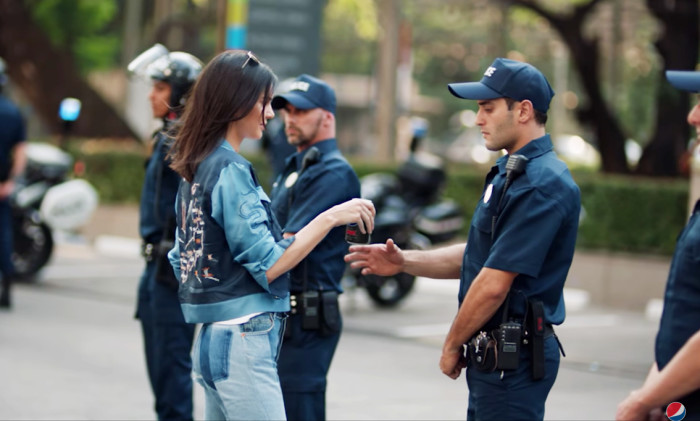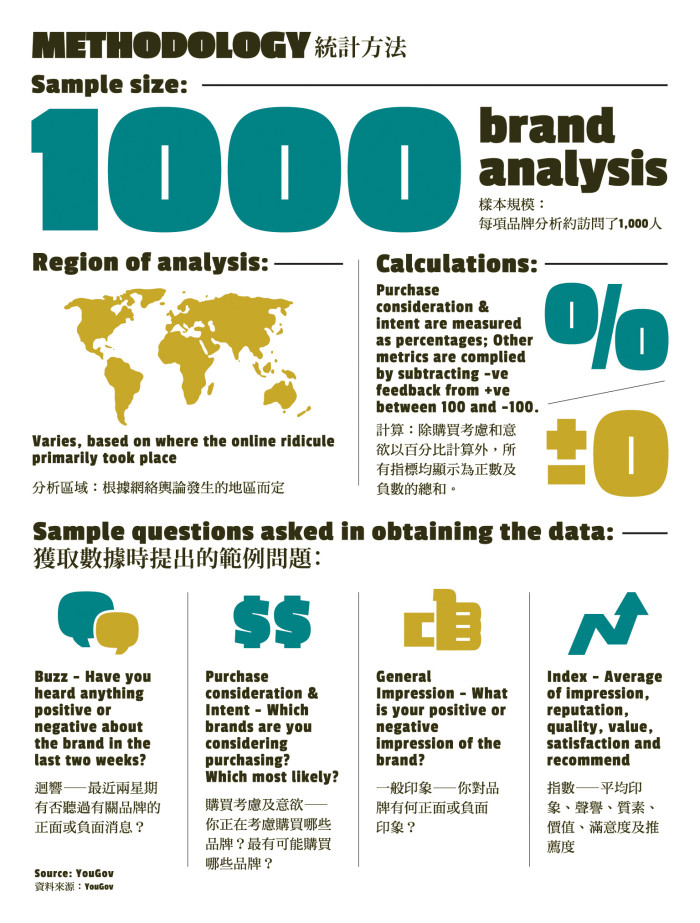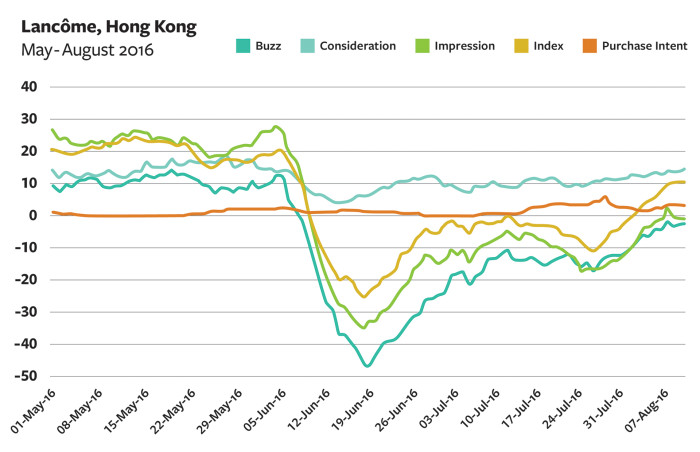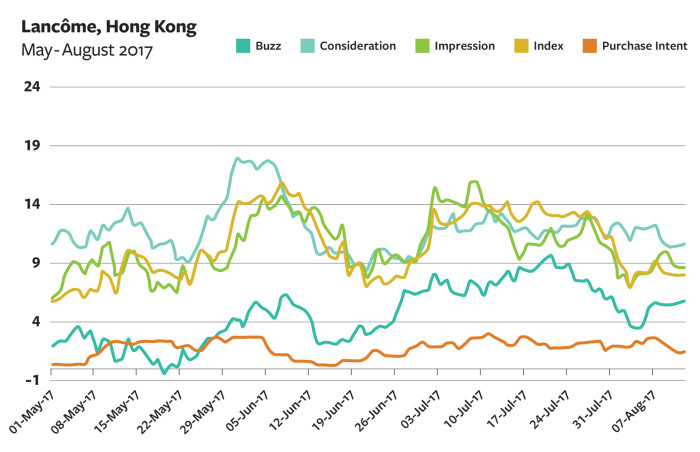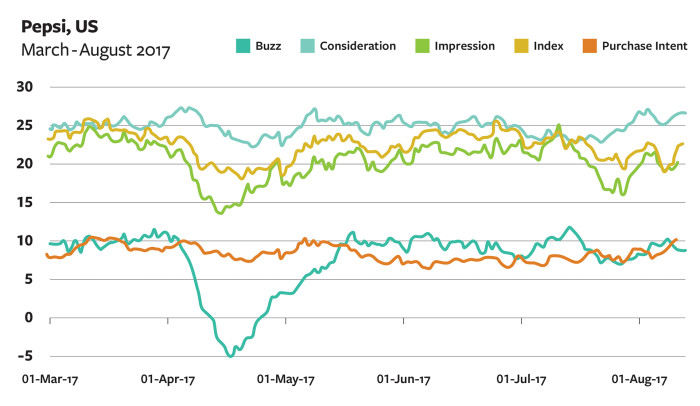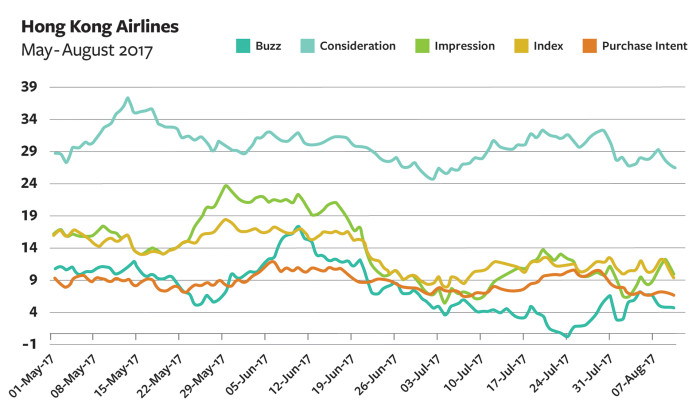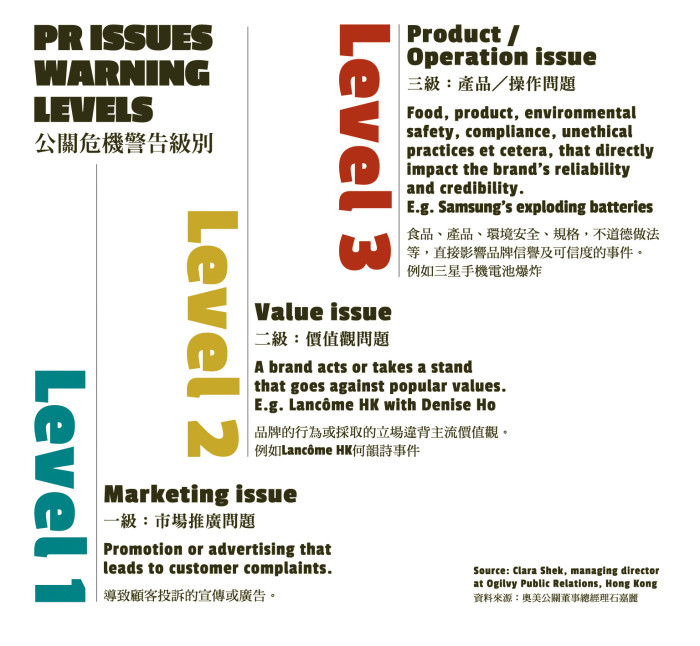
Any PR is good PR: A little online controversy is not bad for business
share on
This story appeared in the Marketing Magazine Hong Kong October issue as: How disastrous is a PR disaster? If you wish to read the Chinese version, please click here.
Charles Dickens famously wrote: “It was the best of times, it was the worst of times” – a classic sentiment that rings equally true today in the age of social media.
On the one hand, brands can use this form of marketing to supplement their online presence or adopt a younger voice to enhance their brand image. On the other hand, one simple complaint on your brand’s Facebook wall, if not handled extremely carefully, can easily escalate into the largest PR scandal your company has ever gone through.
Similarly, distasteful ads were surely noticed in the pre-internet days, but never before have consumers been able to so loudly and vociferously voice their disagreement and outrage.
Lancôme Hong Kong, for example, went through what most marketers would describe as a PR nightmare in 2016 after the brand cancelled a promotional event with politically active singer Denise Ho in June, citing possible “safety reasons”. The PR scandal reached its height when dozens of netizens responded to online calls and actually instigated protests at the brand’s physical locations, which eventually forced the brand to shut its main stores for a day.
Pepsi experienced a similar headache in April this year. Its commercial with model Kendall Jenner, which was criticised for “capitalising on the current political discourse”, was met with immediate online ridicule, forcing it to pull the ad, and suffer negative PR from media all over the globe.
The two brands mentioned are not the only “victims”. Thanks to the transparency of social media, we have seen more netizens voicing (or sometimes, dramatising) their disagreements – big or small – on brands to the point where it seems we’re witnessing a PR scandal every other week.Local Facebook pages such as “PR crisis” also contribute to capturing and spreading negative buzz.
Several reports have shown us how influential social media can be as the sheer scale of its word-of-mouth power is beyond impressive, but when we look a little deeper, there are a number of unanswered questions, or potentially loopholes in this logic.
First and foremost, are these so-called PR fiascos really disasters?
In other words, how much do these PR scandals actually cost the brand financially, and do they really impact future sales or ruin reputations? Does outrage from a vocal group of customers actually translate into having an impact on sales or is the “extra” exposure actually productive for brands?
There is, of course, a caveat to this line of thinking – product and customer safety, and for the scope of this investigation, we take it as fact that safety issues will always negatively impact a brand.
If we rule that out, will a PR crisis or online backlash because of a brand’s values, a brand’s political stance, distasteful actions by a brand, or simply bad communication, upset customers enough to make them leave a brand forever?
We look at YouGov data commissioned for this report to find the answers.
What does the data tell us?
Marketing studied five brands with market research company YouGov, and looked at media metrics (buzz), brand health metrics (impression and index), and lower funnel metrics (purchase consideration and intent).
The brands studied - Lancôme Hong Kong, Pepsi US, Audi China, Hong Kong Airlines, and British Airways - have all faced online backlash of one kind or another between 2016 and 2017. The reasons for the online fallout concerned (very) vocal disagreements over their communication or marketing efforts.
The five graphs show similar, shocking patterns.
The case of Lancôme
Region: Hong Kong
Cause: Netizens opposed its decision to cancel a promotional event with politically active singer, which was compounded by the brand’s lack of communication on the issue.
Amid Lancôme Hong Kong’s Denise Ho controversy, which started on 4 June 2016, all the Hong Kong respondents’ buzz, impression and index surrounding the brand saw a plunge (with its buzz dropping from approximately +28 to -35) within 10 days. This means that correspondents in the survey were aware of the negative news, or even had negative feelings about the brand. The impact of the controversy slowly lessened, but had yet to reach pre-crisis levels in early August.
The correspondents’ purchase intent for the brand, however, remained constant throughout the controversy.
Consumer consideration in buying Lancôme’s products, though it fell slightly in June, started recovering in early July, and quickly returned to the exact same level it had before the PR disaster.
A more recent review on Lancôme shows that the brand had attained a normal movement in its data, with the fluctuation of its purchase intent ranging between 0 to 3 points. The consideration spikes were mostly spurred by advertising campaigns or product launches, YouGov suggested.
The case of Pepsi US
Region: US
Cause: The widespread criticism from viewers believed the ad trivialised recent protests and the Black Lives Matter movement. The misplaced apology that was directed towards Kendall Jenner rather than viewers who were offended by the video caused further backlash.
Similarly, the buzz surrounding Pepsi dropped about 15 points within a week in April 2016 after it launched the politically sensitive campaign, but US customers’ purchase intent remained unaffected.
The results for Pepsi’s second quarter (April to July 2017) were also very much on track. It's reported net revenue increased 2%, while its organic revenue, which excludes the impacts of foreign exchange translation and structural changes, grew 3.1%. That is one point higher than its first quarter organic revenue. Without jumping to conclusions, one might infer that the campaign has actually been beneficial, rather than harmful to sales.
The case of Hong Kong Airlines
Hong Kong Airlines drew much hatred online in late June 2017 after announcing Jackie Chan - a controversial celebrity in Hong Kong and Taiwan, especially when compared to his fame in other parts of the world - as its ambassador. However, it saw zero impact from the issue on its buzz, consideration, impression and purchase intent.
The graph, at most, showed a 3% to 4% fluctuation in the buzz surrounding HKA, and the patterns in the data were quite ordinary - in line with any other airline who goes through promotional or peak seasons, according to Ervin Ha, YouGov’s head of data products in Asia Pacific.
The case of Audi China and British Airways
Read more:[Update] Audi China “deeply regrets” ad comparing women to used cars
“We tend to speak morally of ourselves, but a dollar is a dollar,” said YouGov’s Ha. “As long as there are no safety issues, we tend to go for the most affordable products.”
We tend to speak morally of ourselves, but a dollar is a dollar. As long as there are no safety issues, we tend to go for the most affordable products.
These graphs indicate that customers who are loyal to Lancôme will stay loyal to Lancôme, as long as there are no issues about the product safety. The rule stays true even if customers have a bad impression of the brand, he added.
The patterns might show more fluctuations if it were segmented according to customer's’ gender and age groups, which would be interesting to further investigate, but it remains true to say customers’ purchase consideration is independent of any social media dramas.
This would mean marketing and PR crises may be disastrous in some ways, but they are far from fatal.
“As you can see, Pepsi’s chart quickly recovered and reached the normal level in late May, meaning it took only two to three weeks time for the US customers to forget what has happened with the brand,” Ha explained.
According to his experience, consumers’ ability to forgive might vary across different regions. For instance, the Philippines tend to be more positive, so their impression of a brand might not drop as much after a PR scandals.
On the other hand, people in Hong Kong and Singapore are more skeptical on PR issues, so the negative buzz may sustain for a longer period. Yet, their considerations when buying a brand are mainly focused on the merit of the product itself, or on its price.
“The figures are telling us that social media scandal is like a flare - it’s very bright, very hot - then it’s gone. The issue might affect your reputation with certain groups, but those are not always your target customers,” explained Charles Lankester, EVP, global reputation & risk management practice, Ruder Finn Asia. “Most of the people making noise on the internet are not going to be the people building your brand.”
The issue might affect your reputation with certain groups, but those are not always your target customers.
PR scandals - should we still care?
To Kim Lam, Nestle Hong Kong’s senior brand manager, she wasn’t too surprised about the fact that bad social spin wouldn’t always lead to bad outcomes.
“Should we still care? I think we should,” she answered.
Bad PR might not be as impactful as fault, but positive spin would always get positive outcomes, Lam added.
Nescafé’s instant coffee market share in Hong Kong, for example, experienced a 800 basis point turnaround since the launch of its 2016 Leon Lai online campaign.
“It’s very important to delight the customers, not to upset them. This is one thing that always holds true for us marketers.”
But one valuable insight that the metrics brought, Ruder Finn Asia’s Lankester suggested, is that companies should stop misplacing their nervousness about negative buzz.
“It’s easy to spot a problem, but the bigger challenge is - issues escalate and evaporate quickly on the internet. Should we respond now, or will this be a knee-jerk reaction?” Clara Shek, managing director at Ogilvy Public Relations, Hong Kong said.
Should we respond now, or will this be a knee-jerk reaction?
The complexity of the organisation, such as reviewing, approving and action might take longer than what a brand can afford under a crisis situation as well, Shek added.
The first thing to do when undergoing a PR crisis, according to Lankester and Shek, is thus to assess the origin of the crisis - is it really the fault of your company, or is it baseless?
The case with Hong Kong Airlines, for instance, has proven that people sometimes just love to troll on the internet. George Liu, Hong Kong Airline’s chief marketing officer, said they still took the online ridicule seriously by sharing what’s behind their marketing strategies to the local media - an attempt to add a formal voice on the issue.
“Online buzz is important, but it’s one part of the overall marketing strategies. There are several factors that contribute to a good campaign, and there’s no need to overreact,” he explained.
There are several factors that contribute to a good campaign, and there’s no need to overreact.
“Our primary aim in tapping Jackie Chan is to increase global exposure, and the decision did direct us to sales so far. We try to make everyone on the planet happy, but at the end, it’s about being there when people think of purchasing, then provide an emotionally attractive offer to them at the right moment.”
A little controversy is good for business
Ruder Finn’s Lankester suggested that online ridicule, if not caused by fundamental problems, might even serve as an opportunity for unestablished brands.
“In the restaurant world, a terrible review on Tripadvisor can actually generate a lot of positive coverage. Customers may become curious about the brand, or sometimes they just want to watch a drama unfold, which eventually lead to brand exposure,” he explained.
“New brands are born on social, and this is how the customers get to know them.”
New brands are born on social, and this is how the customers get to know them.
A study by Jonah Berger, a marketing professor at the Wharton School, also proved that how familiar a brand or product was before the negative publicity plays a crucial factor. By analysing data that cross-matched book sales against critics’ appraisals in The New York Times Book Review, the study revealed that negative reviews of a new book by an “established” author hurt sales.
“For books by relatively unknown authors, however, negative publicity has the opposite effect,” increasing sales by 45% over their expected sales trajectory,” it wrote.
Hence, a little drama does no harm to your brand. But, if a PR scandal fundamentally destroys trust between the brand and your customers, you have to respond immediately.
“If there’s something wrong with your food product, you should do a voluntary recall to prompt higher degree of trust,” said Lankester. “There would be no value from the consumer trust point of view if you wait until the authorities urge action.”
He also advised brands to be careful with their phrasing. The word “recall” and “withdraw”, for example, would have different implications.
Brands are in best control before a PR scandal happens
Yet, the most important advice Lankester would give to brands is: be prepared.
“Mapping out all the potential issues that you may face, and preparing an engagement or response plan, should always be the first thing to do,” he explained.
Similarly, Nestle’s Kim would prepare herself for the worst every time her team launches a new campaign online.
“We have to make sure we’ve chosen the right celebrities, and got the right communication message. Then, we have to monitor social media 24/7 to keep track of the buzz after the launch,” she explained.
Taking a successful online campaign the company did with legendary singer Leon Lai for Nescafé instant coffee in 2016 as an example, which topped the chart of 2016 Q2 YouTube ads leaderboard, Lam said it went through several ups and downs as well.
“Leon Lai cancelled his concert due to safety issues during that period, and it was a time of uncertainty, in which the netizens hadn’t decided if they would still support Lai,” she recalled.
“Amid a time like this, we decided to keep the campaign on hold. It’s always better to have no comments than to be in the spotlight for bad PR. Luckily, Lai settled the issue and we could proceed our campaign.”
It’s always better to have no comments than to be in the spotlight for bad PR.
Her tip on dealing with PR scandals is thus to stay low profile, and stop boosting any relevant ads. “You’ll never know how things could escalate, and there’s no harm in playing safe.”
share on
Free newsletter
Get the daily lowdown on Asia's top marketing stories.
We break down the big and messy topics of the day so you're updated on the most important developments in Asia's marketing development – for free.
subscribe now open in new window
